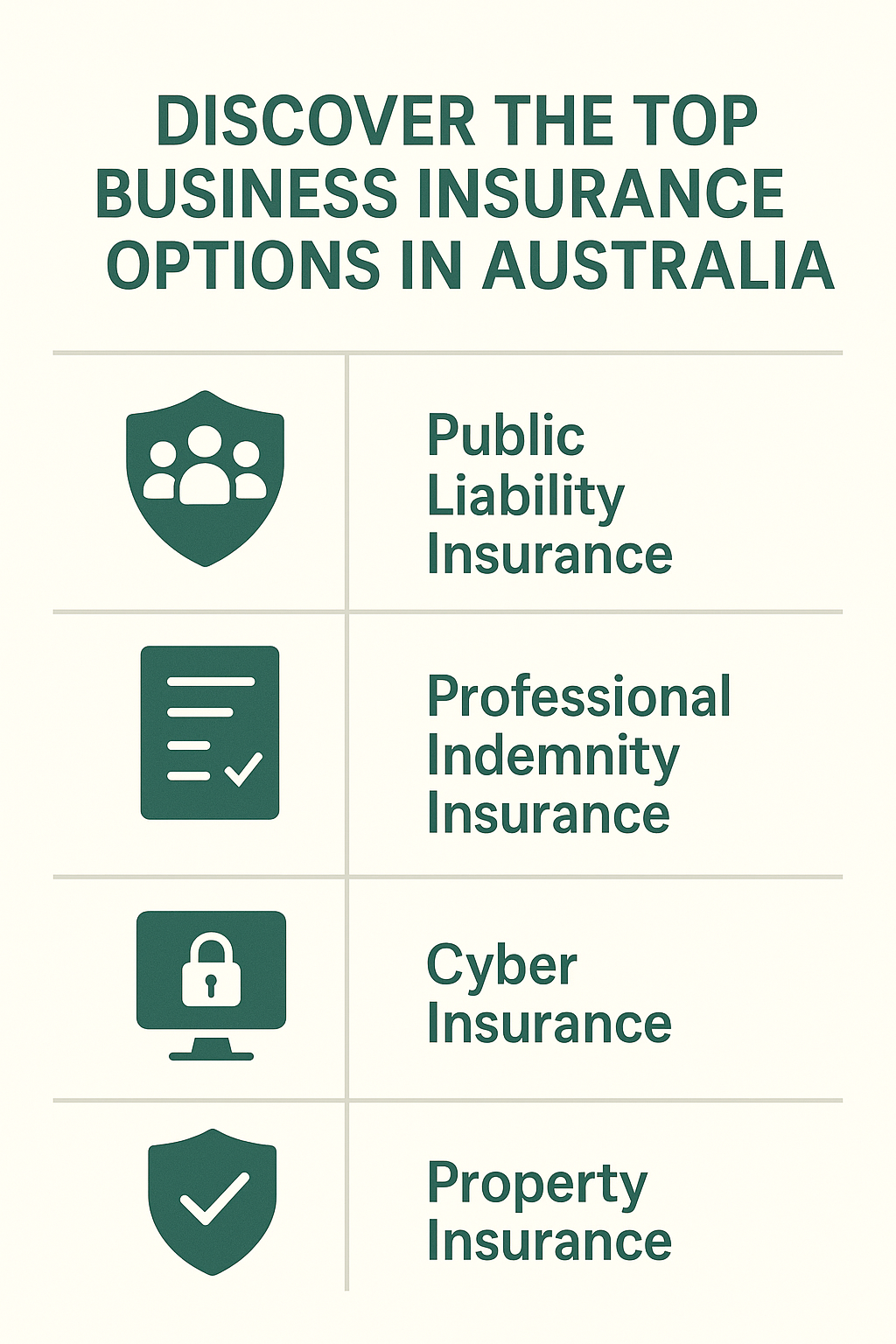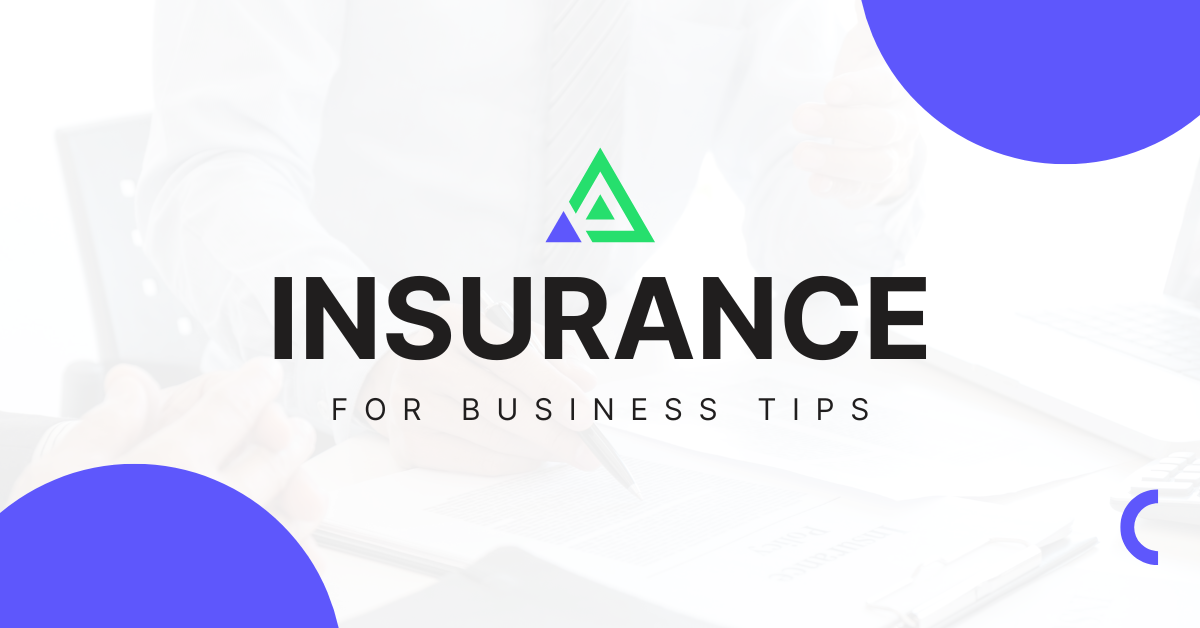Navigating the world of business insurance in Australia can be daunting, especially for small business owners striving to protect their ventures while managing costs.
With various options available, understanding the nuances of small business liability insurance and how to compare business insurance policies can provide a significant advantage.
This guide aims to demystify the process of selecting affordable business insurance options by highlighting key considerations and offering insights into best practices. As a trusted advisor, we will empower you to make informed decisions that safeguard your business and foster growth and resilience.
Join us as we explore innovative insurance solutions tailored to the unique needs of entrepreneurs and small businesses across Australia. The official Australian government business resource provides an overview of the types of business insurance available.
Understanding Business Insurance in Australia
Business insurance in Australia is a crucial aspect of risk management for entrepreneurs and small business owners.
This section explores the importance of insurance, the various types available, and the benefits of protecting your business.
👉 Need Help and Advice With Your Business Insurance? Get Help Here.
Importance of Business Insurance
Business insurance is vital for companies operating in Australia’s dynamic economic landscape. It provides financial protection against unforeseen events that could otherwise cripple a business.
Risk mitigation is at the core of business insurance.
By transferring potential financial losses to an insurer, businesses can focus on growth and innovation without constant worry about catastrophic setbacks.
Legal compliance is another crucial aspect. Many industries in Australia require specific insurance coverage as part of regulatory requirements, making it essential for businesses to stay informed about their obligations.
Furthermore, business insurance enhances credibility with clients and partners. It demonstrates financial responsibility and a commitment to maintaining business continuity, which can be a significant advantage in competitive markets.

Types of Business Insurance Available
The Australian insurance market offers various coverage options tailored to different business needs. Understanding these options is crucial for comprehensive protection.
-
Public Liability Insurance: Covers legal costs and compensation claims from third parties for injury or property damage.
-
Professional Indemnity Insurance: Protects businesses that provide advice or services against negligence or breach of duty claims.
-
Property Insurance Safeguards business assets against damage or loss caused by events such as fire, theft, or natural disasters.
Other common types include:
-
Business Interruption Insurance
-
Workers’ Compensation Insurance
-
Cyber Liability Insurance
-
Management Liability Insurance
Each type serves a specific purpose, and the right combination depends on individual business risks and industry requirements.
👉 Need Help and Advice With Your Business Insurance? Get Help Here.
Benefits of Insuring Your Business
Insuring your business in Australia offers multifaceted advantages that extend beyond mere financial protection. It’s an investment in your company’s longevity and stability.
Financial security is the primary benefit. Insurance policies can cover substantial costs associated with legal claims, property damage, or business interruptions, preventing these events from depleting your company’s resources.
Business continuity is another crucial advantage. With proper insurance, your business can recover from setbacks, maintain operations, and maintain customer relationships even in challenging times.
Insurance also provides peace of mind for business owners and stakeholders. Knowing that potential risks are mitigated allows for more confident decision-making and strategic planning.
Key Insurance Options for Small Businesses
Small businesses in Australia face unique challenges and risks. This section delves into essential insurance options that can provide comprehensive protection for entrepreneurs and small business owners.
Public Liability Insurance Essentials
Public Liability Insurance is a cornerstone of business protection in Australia, safeguarding against third-party claims of injury or property damage.
This coverage is essential for businesses that interact with the public, whether on their premises or elsewhere. It protects against financial losses from legal fees and compensation payments.
Key aspects of Public Liability Insurance include:
-
Coverage for bodily injury to third parties
-
Protection against property damage claims
-
Legal defense costs
Real-world scenarios where this insurance is crucial:
-
A customer slipping in a retail store
-
Property damage during a home service call
-
Injuries at events organized by the business
Understanding policy limits and exclusions is vital for ensuring adequate protection tailored to your business’s risks and activities.
👉 Need Help and Advice With Your Business Insurance? Get Help Here.
Professional Indemnity Coverage Explained
Professional indemnity or professional liability insurance is crucial for businesses that provide professional services or advice.
This insurance protects against claims of negligence, errors, or omissions in professional services. It’s particularly important for consultants, lawyers, accountants, and other service-based businesses.
Key features of Professional Indemnity Insurance include:
-
Coverage for legal defense costs
-
Compensation for damages awarded to clients
-
Protection against claims of breach of professional duty
Real-world application: A financial advisor gives incorrect advice, leading to client losses. Professional Indemnity Insurance would cover legal costs and potential compensation.
It’s important to note that coverage limits and terms can vary, so carefully assessing your business’s specific needs is essential when selecting a policy.
Cyber Liability Insurance for Modern Businesses
In today’s digital landscape, Cyber Liability Insurance has become increasingly vital for businesses of all sizes in Australia.
This insurance protects against financial losses resulting from data breaches, cyberattacks, and other digital threats. It’s particularly crucial for businesses that handle sensitive customer information or rely heavily on digital systems.
Key components of Cyber Liability Insurance often include:
-
Coverage for data breach response costs
-
Protection against business interruption due to cyber incidents
-
Liability coverage for privacy violations
Case study: A small e-commerce business experiences a data breach, exposing customer credit card information. Cyber Liability Insurance helps cover notification costs, legal fees, and potential settlements. Regularly reviewing and updating your coverage as cyber threats evolve is essential to ensure comprehensive protection against emerging risks.
Comparing Business Insurance Policies
Selecting the right business insurance in Australia requires careful comparison of various policies. This section effectively compares options, finds affordable coverage, and understands policy terms.
How to Compare Business Insurance
Comparing business insurance policies effectively is crucial for finding the right coverage at the best value. This process involves more than just looking at premiums; it requires a comprehensive evaluation of coverage, limits, and exclusions.
-
Identify your specific risks: Start by assessing your business’s unique needs and potential vulnerabilities.
-
Compare coverage limits: Ensure the policy limits are adequate for your business size and risk profile.
-
Evaluate exclusions: Pay close attention to what’s not covered in each policy.
Key factors to consider:
-
Reputation and financial stability of the insurer
-
Claims process and customer service quality
-
Flexibility to adjust coverage as your business grows
Creating a comparison table can be helpful:
|
Insurer |
Coverage Type |
Limits |
Exclusions |
Premium |
|---|---|---|---|---|
|
A |
Public Liability |
$5M |
Specific industries |
$X |
|
B |
Public Liability |
$10M |
Certain activities |
$Y |
Remember, the cheapest option isn’t always the best. Focus on finding the policy that offers the most comprehensive protection for your business needs.
Finding Affordable Business Insurance Options
Securing affordable business insurance in Australia doesn’t mean compromising on quality coverage. It’s about finding the right balance between cost and protection.
Bundle policies: Many insurers offer discounts for bundling multiple types of coverage. This can lead to significant savings while ensuring comprehensive protection.
Increase deductibles: Opting for higher deductibles can lower premiums, but it also ensures that you can comfortably cover the out-of-pocket expense if needed.
Consider these strategies for finding cost-effective insurance:
-
Compare quotes from multiple providers
-
Review your coverage annually to ensure it still meets your needs
-
Implement risk management practices to potentially lower premiums
Remember, while cost is essential, it shouldn’t be the sole factor in your decision. Prioritize finding a policy that adequately protects your business from potential risks.
Navigating Policy Terms and Conditions
Understanding the terms and conditions of business insurance policies is crucial for ensuring you have the right coverage and can make informed decisions.
Key terms to understand:
-
Premium: The amount you pay for the insurance
-
Deductible: The amount you pay out-of-pocket before the insurance coverage kicks in
-
Exclusions: Specific situations or events not covered by the policy
Reading the fine print is essential. Pay attention to:
-
Coverage limits and sublimits
-
Claim reporting requirements
-
Policy renewal terms
Don’t hesitate to ask questions if you’re unsure about any policy aspect. Insurance providers or brokers should be able to clarify any confusing terms or conditions.
Remember, understanding your policy thoroughly helps ensure you’re adequately protected and can make the most of your coverage when needed.
Choosing the Right Insurance for Your Business
Selecting the appropriate insurance coverage is a critical decision for any business in Australia. This section guides you through tailoring insurance to your needs, choosing liability coverage, and working with insurance brokers.
Tailoring Insurance to Specific Needs
Customizing your business insurance package is essential to ensure comprehensive coverage without paying for unnecessary protection.
Start by conducting a thorough risk assessment of your business. Identify potential vulnerabilities specific to your industry, business size, and operational methods.
Consider your business structure:
-
Sole traders may have different needs compared to partnerships or companies
-
The size of your workforce and tthe ype of employees (full-time, part-time, contractors) can affect insurance requirements
Evaluate your business assets, including:
-
Physical property (buildings, equipment, inventory)
-
Digital assets (data, intellectual property)
-
Financial assets
Remember, your insurance needs may change as your business grows and evolves. Regularly review and adjust your coverage to align with your current business situation.
Tips for Selecting Small Business Liability Insurance
Choosing the right small business liability insurance protects your company against potential legal claims and financial losses.
-
Assess your risk exposure: Consider the nature of your business activities and potential liabilities.
-
Understand different types of liability coverage: Public liability, product liability, and professional indemnity are common types.
-
Determine appropriate coverage limits: Consider factors like business size, industry standards, and potential claim amounts.
Key considerations:
-
Legal requirements in your industry or for specific contracts
-
The cost of potential claims in your field
-
Any history of claims in your business or industry
“The right liability insurance can be the difference between a minor setback and a major financial disaster for a small business.” – Insurance Industry Expert
Remember, while it’s tempting to opt for minimum coverage to save on premiums, inadequate protection can be far more costly in the long run.
Working with Insurance Brokers forthe Best Deals
Insurance brokers can be valuable allies in finding the best insurance deals for your small business in Australia.
Benefits of working with brokers:
-
Access to a wide range of insurance products
-
Expert advice on coverage needs
-
Assistance in comparing policies and negotiating terms
How to choose a broker:
-
Look for licensed brokers with experience in your industry
-
Check their reputation and client testimonials
-
Understand their fee structure and services offered
Brokers can help you navigate complex insurance terms and find policies unavailable to individual businesses. They can also assist in claims processes, providing ongoing support throughout your insurance journey.
Remember, while brokers can offer valuable expertise, it’s still important to understand your insurance needs and ask questions to ensure you get the best possible coverage for your business.
Maximizing Insurance Benefits
Effectively utilizing your business insurance goes beyond just having a policy in place. This section explores how to regularly review coverage, leverage insurance for business growth, and engage with providers for optimal support.
Regularly Reviewing Insurance Coverage
Conducting regular reviews of your business insurance coverage is crucial to ensure it remains aligned with your evolving business needs and market conditions.
Recommended review frequency:
-
Annually at a minimum
-
After significant business changes (e.g., expansion, new products/services)
-
Following major market shifts or regulatory changes
Key aspects to review:
-
Coverage limits: Are they adequate for your business size and risk profile?
-
Exclusions: Have any new risks emerged that aren’t covered?
-
Premiums: Are you still getting competitive rates?
Consider creating a checklist for your annual review to ensure all aspects of your coverage are thoroughly examined. This proactive approach helps prevent coverage gaps and ensures your business remains adequately protected as it grows and evolves.
Leveraging Insurance for Business Growth
Insurance can be a powerful tool for facilitating business growth, providing the confidence and financial security needed to pursue new opportunities.
Ways insurance supports growth:
-
Enables risk-taking in new ventures or markets
-
Enhances credibility with clients and partners
-
Provides financial stability for long-term planning
Strategic use of insurance:
-
Use coverage as a selling point to win contracts or enter new markets
-
Leverage insurance to secure better terms on loans or investments
-
Utilize risk transfer to free up capital for growth initiatives
“Well-structured insurance coverage can be a growth accelerator, allowing businesses to pursue opportunities they might otherwise avoid confidently.” – Business Strategy Consultant
Remember, the goal is to view insurance not just as a cost, but as a strategic asset that can contribute to your business’s expansion and success.
Engaging with Insurance Providers for Support
Building a strong relationship with your insurance provider can lead to better service, more tailored coverage, and valuable support for your business.
Effective engagement strategies:
-
Schedule regular check-ins with your provider or broker
-
Promptly inform them of business changes that might affect coverage
-
Seek their advice on risk management practices
Maximizing provider support:
-
Take advantage of any risk assessment services offered
-
Participate in workshops or training sessions on insurance topics
-
Utilize their expertise for claims processes and prevention strategies
Remember, insurance providers have extensive knowledge and resources that can benefit your business beyond just providing coverage. Engaging them as partners in your risk management strategy can lead to more comprehensive protection and potentially lower premiums over time.




